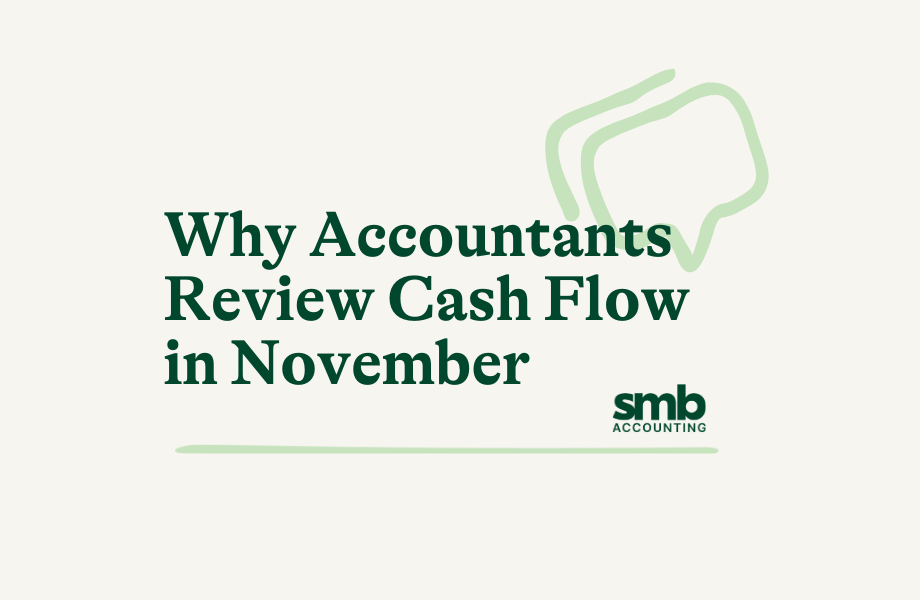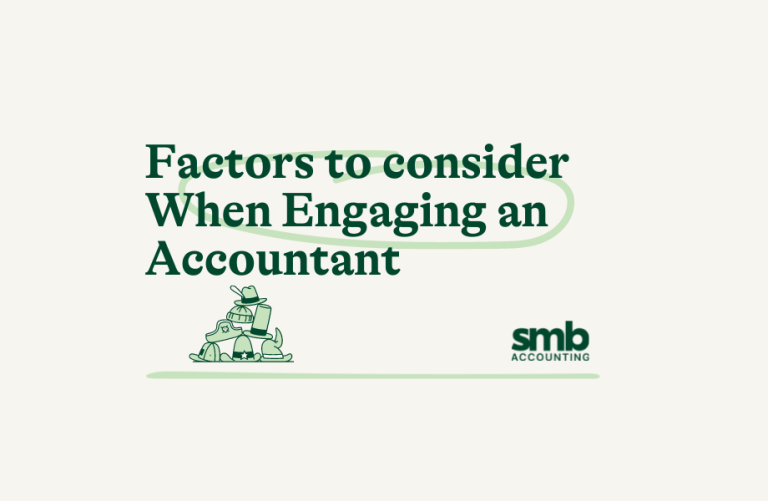November is a balancing point for a lot of businesses. With summer and the holidays just around the corner, things start to shift. Staff begin planning time off, trading hours may change, and expenses tend to creep up faster than usual. It’s not quite the end of the year yet, but it’s close enough that problems left untouched now will likely drag into January.
That’s why accountants often focus on cash flow in November. It’s the last full month to review the books while business is still running as usual. Looking to December, we know what that month brings: quieter inboxes, public holidays, and limited chances to make big financial changes. By tackling cash flow early, we give ourselves enough time to adjust or fix things now, not when it’s too late.
Why November Is a Smart Time to Look at Cash Flow
The weeks before the holiday wind-down might feel like there’s still plenty of time, but that window closes quickly. Many businesses start slowing right after mid-December, and that drop in activity can affect how money flows in and out. Planning ahead in November gives us more control during that transition.
Here’s why the timing matters:
• Public holidays, staff leave, and supplier closures can put pressure on cash reserves
• Slower customer payments heading into December can affect whether bills or wages get paid on time
• Lodgement dates, like early January BAS, don’t wait for you to catch your breath
By reviewing cash flow in November, we’re not rushing. Instead, we can adjust spending, prepare for gaps, or set aside buffers before they’re needed. It’s not just preparation, it’s protection.
Tracking Incoming Payments and Outstanding Invoices
It’s common this time of year to discover that a few invoices haven’t been settled. Sometimes it’s clients stalling, sometimes it’s our own admin slipping behind. Either way, outstanding income is money that can’t be used to cover outgoing expenses. We don’t want to be chasing invoices the week before Christmas.
In November, we have enough breathing room to:
• Check which invoices are overdue and send gentle follow-ups
• Review how long our usual payment terms take with each customer
• Check whether any income has been recorded but not actually received
Accountants often help flag where income might be missing or delayed so we can act early. When payments come in before everyone goes offline for summer, our cash position stays healthier.
Forecasting Expenses Across the Holiday Break
Expenses don’t take a holiday, even if operations slow down. If we don’t plan now, things like wages, holiday pay, and supplier costs can hit all at once. Add in bonuses or early January payments, and we could be looking at a tight squeeze.
A November review gives us a better picture of what’s coming. It lets us:
• Map out expected fixed costs through January
• Estimate extra staff payments across public holidays and leave periods
• Plan for regular expenses that continue while income slows
For seasonal businesses, especially those in tourism or hospitality across Sunshine Coast, Brisbane, and Caloundra, the pattern of spending doesn’t always match the incoming revenue. We’ve seen how helpful it is to forecast clearly, rather than leave it too late and make rushed decisions.
Reviewing Tools and Systems Before Year-End
Sometimes the reason cash flow gets messy isn’t a surprise expense, it’s a missing reminder, slow tracking system, or old way of doing things. We’ve noticed that when tools don’t keep pace with the business, errors show up more often, especially when things get busy.
There are some simple gains to be made by pausing now to review:
• Is our invoicing system working fast enough, or are we copying details across too many files?
• Are payment records updated in real time, or are we missing income because no one double-checked?
• Is our software able to give us a clear cash flow view, or are we still working from rough spreadsheets?
November gives us time to fix these issues without stress. Updates made now are put in place before year-end, and they’re ready for use next year when things pick up again.
Avoiding New Year Surprises with Better Timing
Most of us don’t want January to start with unexpected issues. But if we leave everything until the final week of December, the chance to fix small problems quickly disappears. By reviewing cash flow, overdue items, and system gaps in November, we give ourselves the space to handle surprises while we still have support available.
Here’s how that makes a difference:
• Lodging returns like BAS in early January is less of a rush if reports are already clean
• Resolving bank mismatches or reporting issues is simpler when vendors and software helpdesks are still operating
• We can space out work more evenly and keep December less reactive
This kind of timing doesn’t just help financially, it means we can relax over the break without that nagging feeling of unfinished business.
Why November Cash Flow Reviews Save Stress Later
We’ve worked through enough year-end periods to say that planning in November always makes for a calmer start to January. December gets busy in ways we can’t always predict. Late-paying customers, last-minute jobs, or unexpected costs can throw off even good plans.
Cash flow reviews act like a second check before the summer shift. They give us more confidence that wages, bills, and holiday leave are under control. For many Sunshine Coast businesses, from Maryborough to Caloundra, it’s this kind of steady prep that turns a stressful season into a manageable one.
By taking action in November, we’re not just reacting to what might happen. We’re setting ourselves up to handle both the quiet days and the busy ones that come with summer. That way, we start the new year focused, not flustered.
Reviewing your cash flow this November doesn’t have to feel overwhelming. We work closely with businesses across the region to identify hidden issues, organise income records, and make sure nothing is missed as the year winds down. With our help, you can move through December smoothly without last-minute stress over invoices or returns. For reliable support from local Sunshine Coast accountants, connect with SMB Accounting today to get started.




